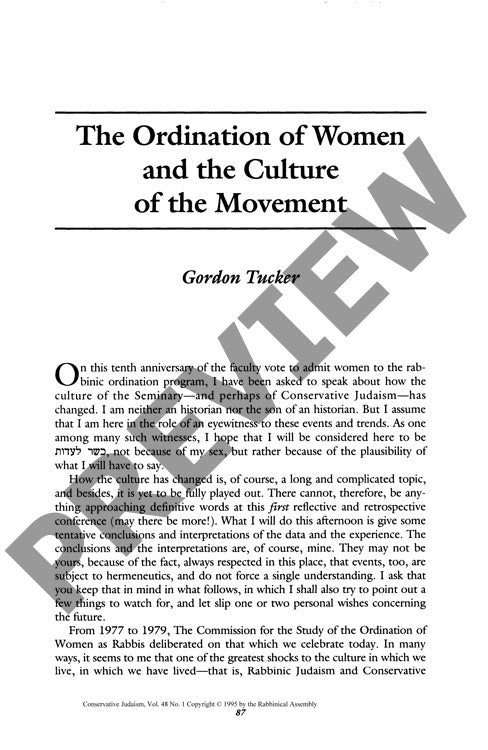The Ordination of Women and the Culture
Couldn't load pickup availability
The 1983 decision to ordain women as Conservative rabbis catalyzed cultural transformations that extended far beyond gender equality, fundamentally reshaping both Conservative Judaism and the Jewish Theological Seminary. Drawing from his experience as Dean of the Rabbinical School, Tucker demonstrates how the Commission for the Study of the Ordination of Women as Rabbis (1977-1979) revolutionized traditional decision-making processes by incorporating lay voices and subjecting halakhic positions to unprecedented cross-examination by non-rabbinical members. Through historical analysis and institutional ethnography, the research reveals a parallel between women's enfranchisement and the broader democratization of Jewish scholarship, both enabled by modern technological and social changes. Chancellor Gerson Cohen's ideological journey from conservative traditionalism in 1974 to his revolutionary "Spirit of Cordova" address in 1979 exemplifies this transformation, advocating for innovative responses to contemporary challenges. The ordination of women ultimately represented a more expansive phenomenon: the recovery of suppressed voices and experiences, creating what Tucker terms a "resurrection of the dead" (תחיית המתים) that permanently altered Conservative Jewish cultural dynamics beyond gender-specific reforms.

More Information
-
Physical Description
-
Publication Information
Published
ISBN
-
Publication Credits
Gordon Tucker

